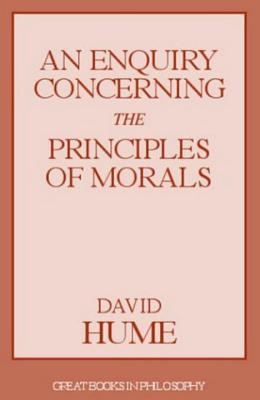Judging it to be "of all my writings incomparably the best," Hume accurately assessed this groundbreaking classic, which continues to influence philosophical thinking on ethics to this day through the force of its ideas and its clarity of expression. Among the many insights that Hume expounds in this work is that morality is grounded in feelings, not in knowledge. Based on moral sentiment, people naturally value agreeable qualities and shun disagreeable ones. On closer analysis, Hume concludes that the feeling of agreeableness comes from an innate perception of the utility of a particular quality or person to one’s self. Anticipating later utilitarian philosophy, he maintains that the virtues that are most highly esteemed are those that have the greatest usefulness to most people. Justice, for example, is greatly prized because it ideally ensures to everyone a fair share of happiness and security.Hume puts special emphasis on altruism, which he says is rooted in the natural feeling that each of us has for our fellow human beings. When surrounded by people in enjoyable circumstances, we tend also to feel the same enjoyment, and when learning of tragedy, even among people on the other side of the world, we tend to feel sad. Out of such natural sympathy and our general moral sentiments, moral distinctions between good and bad arise, and we are motivated to direct our actions toward ideal goals, not only for ourselves but especially for others. In many ways, Hume’s thinking about ethics was considered radical in its day. His empirical method of interpreting morality as an outgrowth of innate, human emotions helped to steer later philosophy away from the transcendentalist notions of ethics that had earlier prevailed.
| FindBook |
有 1 項符合
An Enquiry Concerning the Principles of Morals的圖書 |
 |
An Enquiry Concerning the Principles of Morals 作者:Hume 出版社:Prometheus Books 出版日期:2004-05-01 語言:英文 規格:平裝 / 169頁 / 21.3 x 14 x 1 cm / 普通級 |
| 圖書館借閱 |
| 國家圖書館 | 全國圖書書目資訊網 | 國立公共資訊圖書館 | 電子書服務平台 | MetaCat 跨館整合查詢 |
| 臺北市立圖書館 | 新北市立圖書館 | 基隆市公共圖書館 | 桃園市立圖書館 | 新竹縣公共圖書館 |
| 苗栗縣立圖書館 | 臺中市立圖書館 | 彰化縣公共圖書館 | 南投縣文化局 | 雲林縣公共圖書館 |
| 嘉義縣圖書館 | 臺南市立圖書館 | 高雄市立圖書館 | 屏東縣公共圖書館 | 宜蘭縣公共圖書館 |
| 花蓮縣文化局 | 臺東縣文化處 |
|
|
內容簡介
作者簡介
DAVID HUME was born in Edinburgh, Scotland, on April 26, 1711. He entered the University of Edinburgh at the age of twelve but left a few years later without having been conferred a degree. Being a lifelong skeptic, Hume was taken with the French philosophers whose work was exemplary of the movement. In 1734, he made an intellec-tual pilgrimage to La Fleche, France, the town where Descartes had been educated. Three years later, this change of scene culminated in his book titled A Treatise of Human Nature.
After returning to England in 1737, the remainder of Hume’s life was spent writing on psychology, morality, and politics. During this time, his bid for appointment as professor of ethics in Edinburgh proved unsuccessful because of his views on religion. From that point on, he was to undertake short-term positions of employment with powerful and influential people in the English government. These appointments included some travel to the Continent. From 1767 to 1768 he served as undersecretary of state for the northern depart-ment. Hume then returned to Edinburgh, where he died eight years later on August 25, 1776.
|









